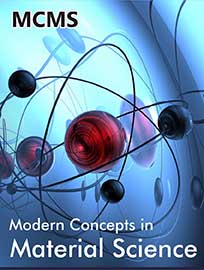 Editorial
Editorial
The Erroneous Banishment of Plastics
Walter Eevers, Department of Chemistry, University of Antwerp,Groenenborgerlaan 171, B-2020 Antwerpen, Belgium.
Received Date: March 04, 2019; Published Date: March 20, 2019
Editorial
Since some months, youth is marching in the streets of several cities throughout Europe. They scream for political attention for the fight against climate change. The debates in the press and on social media go into all directions and give attention to technological solutions to fight climate change, the need for personal life style adaptation but also to fights against nuclear power generation, air traffic etc. But in the margin of these protests also plastics and the use of plastics are condemned in many of these communications.
Not only the wider audience is reacting this way, even graduate students chemistry react massively negative on the use of plastics when asked what they think of polymer chemistry as a discipline for chemists. The terrifying images that circulate on social media on the plastic soup in oceans has shortsighted their view on the contribution of polymers and plastics to modern life. In that sense it is important for teachers and professors in polymer chemistry to realize that their audience has a negative attitude towards the discipline they love and like to disseminate to the next generation of polymer chemists.
The general public has no idea on the massive contribution that plastics deliver to our modern society ranging from major weight saving solutions for multiple transport systems (aerospace, automotive) leading to energy saving or food saving solutions by offering packaging solutions that allow us to increase the storage times of food significantly and as such help reducing food waste. Only these two solutions already contribute significantly to the reduction of greenhouse gasses. Needless to mention the application of plastic based insulation materials used nowadays for development of nearly zero energy housing solutions all over northern Europe.
These contributions to sustainability have been demonstrated by applying Life Cycle Assessments (LCA) a discipline that has been developed and which is scientifically supported to demonstrate progress that these material classes and their use in specific solutions offer compared to alternatives that have been used for many years in building, food, transport industries.
For the future of our beloved polymer chemistry domain it will be important to increase the attention on the following matters. Firstly, the development of new and innovative polymers that can prevent that they remain for years in the natural environment if discarded wrongly. Several polymer classes have been developed already that degrade in natural environments, for example Polyhydroxyalkanoates. Secondly, and simultaneously with the first solution, chemistry needs to assist in finding a solution to increase the value of recycled polymer materials; very often recycled polymer materials are more expensive than virgin materials mostly because of the reduced quality of recycled material. Developing better recycling technologies and easier sorting of plastics will enhance also the recycling percentages of plastics preventing them to end up in the environment because of the value they represent still at the end of their use time. Thirdly, professors in polymer chemistry will need to educate their students not only on the chemical and physical aspects of this material class, but they will need to also assist them to understand the environmental impact based on a scientific LCA approach. At least then the next generation chemists will be able to defend polymer chemistry in the public debate with sound argumentations. And lastly, I believe, it is the duty of every professional chemist to keep communicating on the pros and cons of polymers to enhance humanity and its endeavor to help fighting climate change to keep the planet the place where humanity can remain.
Acknowledgement
None
Conflict of Interest
No conflict of interest.
-
Walter Eevers. The Erroneous Banishment of Plastics. Mod Concept Material Sci. 1(2): 2019. MCMS.MS.ID.000508.
-
Condemned, Disseminate, Shortsighted, Terrifying, Massively, Massive, Demonstrated, Sustainability, Recycled, Endeavor, Polyhydroxyalkanoates, Argumentations, Aerospace, Automotive, Shortsighted, Indoctrinated, Audience, Massively, Terrifying, Adaptation.
-

This work is licensed under a Creative Commons Attribution-NonCommercial 4.0 International License.






